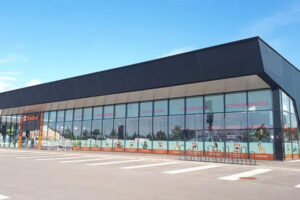By Ellen Tak-Zwetheul
On March 15, 2020, the Dutch Government took lockdown measures in the Netherlands to combat the further outbreak of Covid-19. In addition to schools and child day-care centers, also food & beverage, leisure, and entertainment enterprises had to close their doors. All inhabitants were expected to stay at home as much as possible–social distancing.
The Covid-19 crisis therefore has a serious impact on commercial real estate sectors and especially on retail real estate. As a result of the lockdown measures, the number of visitors of comparison retail–mostly non-food and fashion in high streets and inner cities–decreased by 65%. One third of the tenants closed their doors, while two-thirds stayed open for business, sometimes by offering alternative ways to shop, such as restaurants offering home delivery and takeaway. Nevertheless, these tenants also faced a sharp decline in turnover of up to -80% and liquidity problems as a result.
The Dutch association of institutional real estate investors (IVBN) alongside with other associations have launched the initiative to offer relief to tenants facing business issues because of the Covid-19 crisis. If tenants experience a substantial drop in turnover–25% or more–they can convert the quarterly advance payment of rents into monthly rents and, if necessary, can request a month by month rent deferral, provided they substantiate their request with information regarding turnover. The leniency measures of investors are intended to prevent a further collapse of the retail sector and avoid vacancies and foreclosures.
Nevertheless, there are significant differences between comparison retail centers and convenience retail centers (with focus on food and groceries). Supermarkets and fresh food retailers are at the heart of the food supply. In the first week of the lockdown, supermarkets have experienced a strong increase in turnover–35% more than in the same week last year–due to hoarding. Today the turnover is still about 7% higher compared to the same period last year.
The lockdown and social distancing measures are still in force. It is expected these measures will be alleviated step by step in the upcoming months throughout this year. The impact on comparison retail and its turnover will linger on. The economic downturn caused by the Covid-19 crisis is not helpful to restore the comparison retail sector or to boost consumer confidence and spending. All of this also affects the liquidity and pricing in the comparison retail market, as some investors will apply a “wait & see” attitude and other investors might be looking for distressed opportunities. It seems unlikely cashflows and capital values will be untampered.
The “food & convenience” retail market stands in a different light as these retailers are less affected by the Covid-19 crisis and the economic downturn. They have even seen an increase of turnover. Consumers are expected to stay cautious in their overall behavior and will prefer local shopping.






